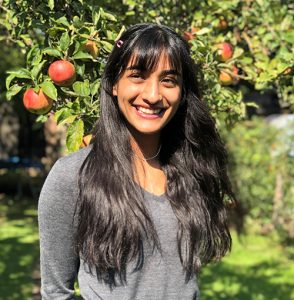October 23, 2020, by School of Medicine
50 at 50: Black History Month and Diversifying Medicine
 For Black History Month this year, Medsoc has been showcasing the contributions of twelve Black healthcare workers and will be hosting an Instagram takeover in collaboration with ACMN and BME medics. Medsoc itself, acts as a representation for all students in Nottingham’s School of Medicine and within Medsoc, there are a range of BME medical societies that represent a variety of ethnic groups such as: BME medics, the Afro-Caribbean Medical Network, the Islamic Medical Association of Nottingham, and the Dharma Medical Association. While each individual society has their own unique aims for their members, ultimately they share a united view to not only inspire BAME students in the medical school community but to also empower them on their identity and heritage through a variety of means such as talks from influential healthcare workers.
For Black History Month this year, Medsoc has been showcasing the contributions of twelve Black healthcare workers and will be hosting an Instagram takeover in collaboration with ACMN and BME medics. Medsoc itself, acts as a representation for all students in Nottingham’s School of Medicine and within Medsoc, there are a range of BME medical societies that represent a variety of ethnic groups such as: BME medics, the Afro-Caribbean Medical Network, the Islamic Medical Association of Nottingham, and the Dharma Medical Association. While each individual society has their own unique aims for their members, ultimately they share a united view to not only inspire BAME students in the medical school community but to also empower them on their identity and heritage through a variety of means such as talks from influential healthcare workers.
While it is important to celebrate Black History this month, it is equally as important to challenge the archaic views society still has towards BME communities. With the recent events from the ‘Black Lives Matter’ movement, racial disparity has been showcased in its many forms, one of those being medical racism. Resources such as Malone Mukwende’s ‘Mind the Gap’ handbook provides a more inclusive approach towards dermatology by showing ‘clinical signs in black and brown skin’. This handbook, along with other similar resources has led to an overall surge for medical schools to create more diverse curriculums that represent all students and would help provide the best care for future patients. At Nottingham’s School of Medicine, Dr Yvonne Mbaki and Eli Todorova compiled a document aimed at ‘Decolonising and Diversifying the (medical) curriculum’. The document splits the core concept of ‘decolonising the curriculum’ into sub-categories: teaching materials, history of the subject, knowledge production and finally current inequalities.
It is, however, up to individuals to also be proactive and take the time to educate themselves on racial (and other discriminatory) issues that are displayed in the healthcare system regardless of whether they are or are not affected by them. Personally, the history and role of underrepresented communities in the NHS (BAME, LGBT+ and women) is something that I find interesting and needs to be addressed more widely in Medical School curriculums across the country. A topic that is especially overlooked is the how the British Empire contributed to the diversity of our current healthcare system with the introduction of the British Nationality Act of 1948, introducing a new wave of workers such as those from the Windrush Generation. I recently came across the book ‘Migrant Architects of the NHS’ by Julian M. Simpson, which looks at the impact of first generation South Asian doctors in general practice and how these doctors worked in the ‘most deprived parts of Britain’. Simpson mentions in his book that although medical migration contributed heavily to making the NHS what it is today, it lacks the spotlight of recognition that it deserves. This is even more relevant knowing that ethnic groups made up around one-fifth of the NHS (statistics as of March 2019) it is topics such as these, that are not necessarily advocated in Medical Schools, but provide a huge insight into how the modern-day healthcare system came to be.
Therefore, while Black History Month celebrates the work black people in all fields of work, it also serves as a time to be reflective on ways to sustain the celebration of diversity year-round, whether it be through educating yourself, or taking steps to decolonise the education system.
By Keya Pindolia – MedSoc BME Officer

Thanks for this. I will purchase the Julian Simpson book, which looks like a really interesting read. The contribution by doctors of South Asian origin to the NHS has been immense and continues to be so. I am embarrassed to think how badly many of them have been treated over the years.